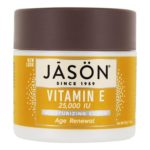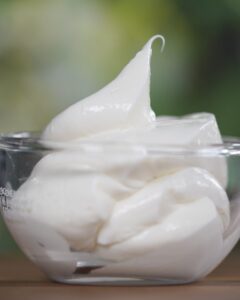




Vitamin E 25000 iu Moisturizing Cream Jason
£13.99 Original price was: £13.99.£11.89Current price is: £11.89.
Out of stock
Email when stock available
Vitamin E 25000
Jason Vitamin E 25000 iu Cream Moisturizing creams are skincare products designed to hydrate and nourish the skin. They typically contain a combination of water, emollients, humectants, and other active ingredients that help maintain and improve the skin’s hydration levels. Here are some key points about moisturizing creams:
1. **Hydration:**
– The primary purpose of moisturising creams is to provide hydration to the skin. They help replenish and lock in moisture, preventing dryness and promoting skin suppleness.
2. **Emollients:**
– Emollients are ingredients that smooth and soften the skin by forming a protective barrier. Common emollients in moisturizing creams include oils, butters, and fatty acids.
3. **Humectants:**
– Humectants attract and retain moisture from the environment and the deeper layers of the skin. Common humectants in moisturising creams include glycerine, hyaluronic acid, and sorbitol.
4. **Ingredients for Specific Concerns:**
– Depending on the formulation, moisturising creams may contain additional ingredients to address specific skincare concerns. For example, some creams include antioxidants, vitamins, peptides, or anti-aging ingredients.
5. **Day and Night Formulas:**
– Some moisturising creams are specifically formulated for daytime use and may include sun protection factors (SPF) to protect the skin from UV rays. Night creams, on the other hand, may focus on repair and regeneration.
6. **Skin Type Consideration:**
– Moisturising creams come in formulations suitable for various skin types. There are creams designed for dry skin, oily skin, combination skin, and sensitive skin. Choosing a product that matches your skin type is essential for optimal results.
7. **Texture and Consistency:**
– Moisturising creams vary in texture, ranging from lightweight lotions to rich and thick creams. The choice of texture often depends on personal preference and the specific needs of the skin.
8. **Fragrance-Free Options:**
– For individuals with sensitive skin or fragrance allergies, there are fragrance-free or hypoallergenic moisturizing creams available.
9. **Application:**
– Apply moisturising cream to clean, dry skin. It’s generally recommended to use them after cleansing and toning, both in the morning and evening.
10. **Consistent Use:**
– Consistent use of a moisturising cream can help maintain healthy skin and address common concerns such as dryness, flakiness, and rough texture.
11. **Quality of Product:**
– Choose a high-quality moisturising cream from reputable brands. Look for products that suit your skin type and have been tested for safety and effectiveness.
12. **Sunscreen Consideration:**
– While some moisturizing creams contain SPF for daytime use, it’s important to use a dedicated sunscreen for extended sun exposure.
When selecting a moisturizing cream, consider your skin’s specific needs, any existing skin conditions, and your personal preferences. If you have concerns about your skin, it’s advisable to consult with a dermatologist for personalized recommendations.
















Reviews
There are no reviews yet.